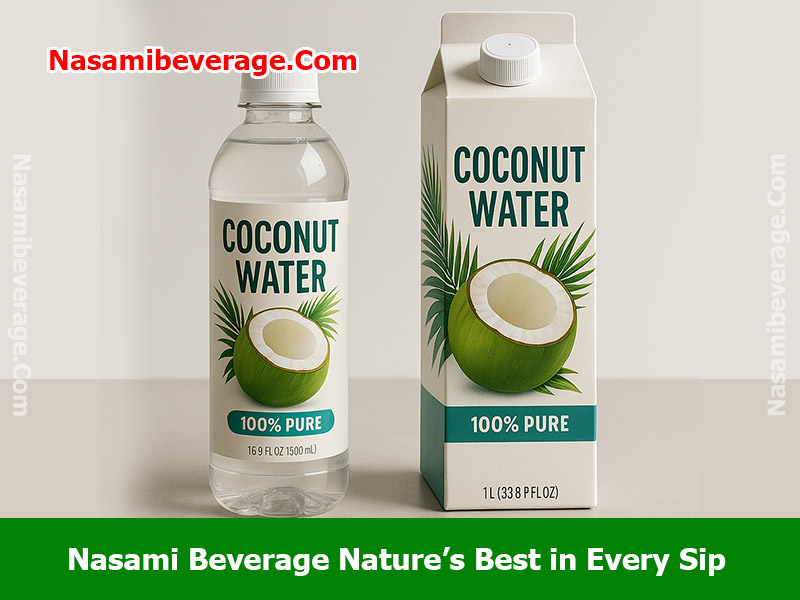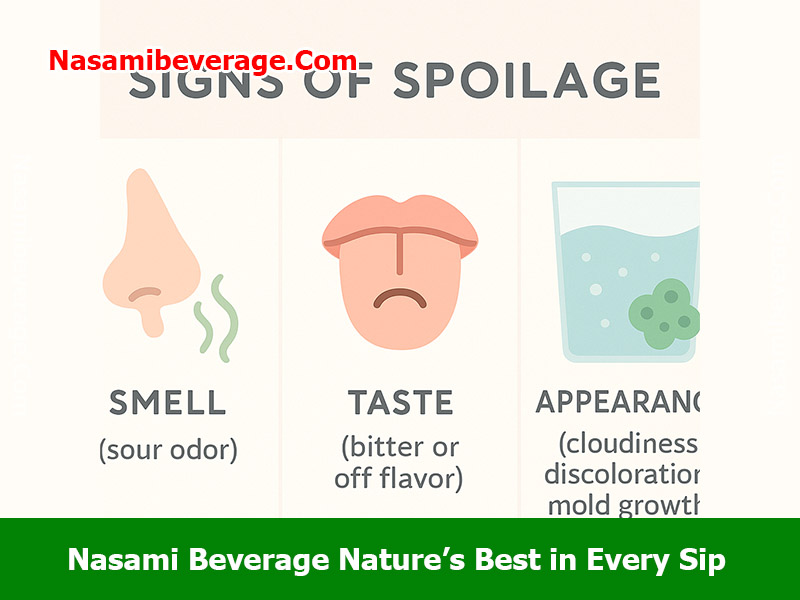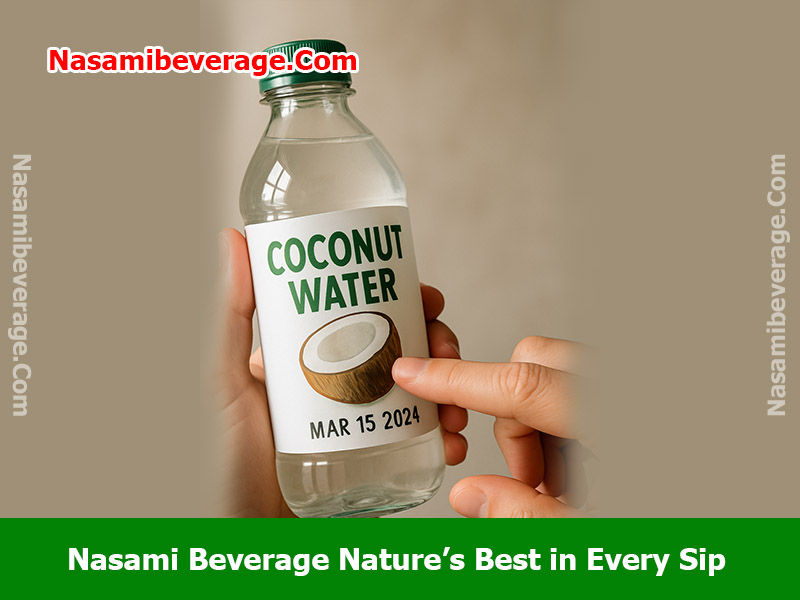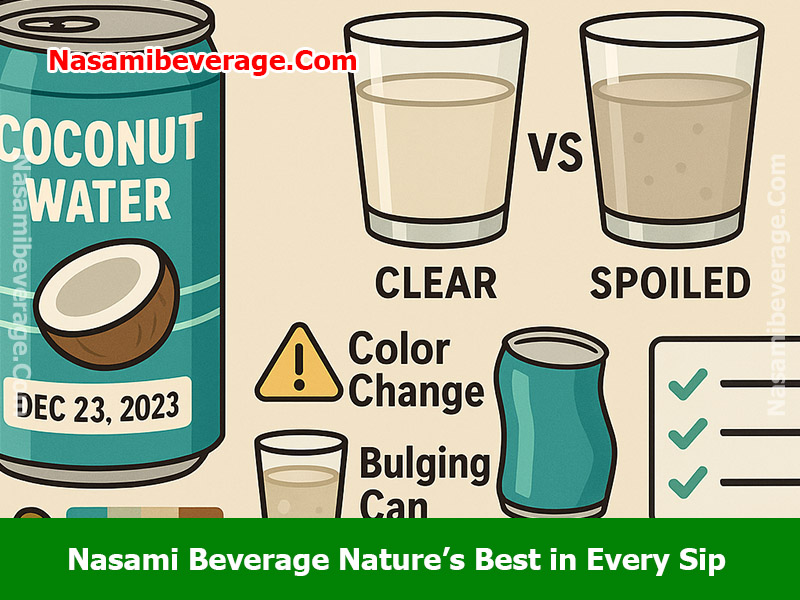How to know if coconut water is bad? Coconut water, a refreshing and electrolyte-packed drink, has become a staple for health enthusiasts worldwide. But like any natural beverage, it can spoil, posing health risks if consumed. Knowing does coconut water go bad and how to tell if coconut water is bad is essential for staying safe and enjoying its benefits. In this guide, we’ll explore five unmistakable signs of spoilage, from off smells to cloudy appearances, and share expert tips on storage and choosing quality brands. As Hippocrates wisely said, “Let food be thy medicine and medicine be thy food.” Let’s ensure your coconut water is safe and fresh!
Why knowing if coconut water Is bad matters
Coconut water, celebrated for its hydration and potassium content, is a favorite among fitness buffs and casual sippers alike. Brands like Vita Coco and Harmless Harvest have made it a pantry staple. However, consuming bad coconut water can lead to unpleasant symptoms or, in rare cases, serious health issues. Understanding spoilage signs ensures you enjoy this natural drink without worry, whether it’s fresh from a coconut or packaged from the store. Knowing how to tell if coconut water is spoiled is crucial for your health.

Spoiled coconut water can harbor bacteria or fungi, leading to nausea, vomiting, or diarrhea. The sour coconut water side effects can range from mild discomfort to severe illness. In rare instances, fungal contamination may produce toxins like 3-nitropropionic acid, which can cause severe poisoning. These risks highlight the importance of checking for spoilage before drinking, especially if the coconut water has been stored for a while or improperly handled. Knowing what happens if you drink expired coconut water is crucial for your health and safety.
5 clear signs coconut water has gone bad
Spotting coconut water gone bad is straightforward if you know what to look for. Below are five sensory and visual cues to help you determine if your drink is past its prime. This guide will teach you how to know when coconut water is bad.
Off or sour smell
Fresh coconut water has a subtle, nutty aroma that’s faintly sweet. What does coconut water smell like when fresh? It should be pleasant and mild. If you detect a sour, vinegary, or fermented coconut water smell, it’s a clear sign of spoilage. This odor often results from bacterial fermentation, which breaks down the water’s natural sugars. If your coconut water smells bad, trust your nose-if it smells off, don’t drink it. You might wonder, is coconut water supposed to smell bad? Absolutely not; a foul odor indicates it’s spoiled. Knowing why does coconut water smell bad helps identify the issue.
Unusual taste
Coconut water should taste mildly sweet and refreshing, with a clean, hydrating finish. What does fresh coconut water taste like? It’s typically light and slightly sweet. So, what does coconut water taste like when it’s gone bad? A sour, bitter, or overly tangy flavor indicates spoilage. If you find your coconut water tastes bad, or specifically, your coconut water tastes sour, it’s a definite red flag. Sometimes, people ask, why does coconut water taste bad or why is my coconut water sour?
This is often due to fermentation. If you’ve already noticed other signs like a bad smell or cloudiness, avoid tasting it altogether to stay safe. Always sip cautiously if you suspect something’s wrong, because is sour coconut water bad? Yes, it can be. Knowing what does bad coconut water taste like can prevent you from consuming something harmful. If your coconut water taste bitter or you’re thinking why does my coconut water taste weird, it’s best to discard it.

Cloudiness or discoloration
Clear or slightly translucent, fresh coconut water sparkles in the light. What does coconut water look like when fresh? It should be mostly transparent. Cloudy, murky, or yellowish liquid is a red flag for bacterial growth or fermentation. Many wonder, is coconut water clear or is coconut water supposed to be cloudy? The answer is generally clear, so cloudy coconut water is a concern.
If your coconut water is yellow or you notice coconut water yellowish, it’s a strong sign of spoilage. So, is yellow coconut water bad? Often, yes. Therefore, can I drink yellow coconut water? It’s best to avoid it to prevent health risks. While some raw coconut water may naturally turn pink due to polyphenol oxidation, a coconut water pink color paired with other spoilage signs means it’s time to toss it. If you see mold coconut water, discard it immediately. Knowing what does bad coconut water look like can save you from consuming a spoiled product.
Fizziness or carbonation
Unlike sparkling drinks, coconut water should never be fizzy. Bubbles or carbonation indicate fermentation, a process where bacteria or yeast produce gases. If your coconut water fizzes when opened or poured, discard it immediately-it’s no longer safe to consume. Many ask, is fizzy coconut water bad? Yes, it indicates spoilage. If you’re wondering why is my coconut water fizzy, it’s likely due to bacterial activity, and is it safe to drink fermented coconut water? Absolutely not.
Expired date or prolonged storage
Always check the expiration date on packaged coconut water, as brands like Zico and C2O clearly mark shelf life (typically 6-9 months unopened). This helps determine when does coconut water expire. Once opened, refrigerate and consume within 1-3 days. If you’re asking how long does zico coconut water last after opening, the general rule for opened coconut water applies. Fresh coconut water from a cracked coconut lasts only 1-2 days in the fridge. If it’s been sitting too long, or is old coconut water, err on the side of caution. Knowing your coconut water expiration dates is key. Many wonder, can you drink expired coconut water? While unopened products might be safe for a short period past their date, it’s always best to be careful and check for other spoilage signs. The coconut water shelf life varies significantly between unopened and opened containers.
How to store coconut water to prevent spoilage
Proper storage is key to keeping coconut water fresh and safe. Whether you’re handling packaged cartons or fresh coconut water, these tips will help extend its shelf life and maintain quality.
Tips for packaged coconut water
Store unopened coconut water cartons or bottles in a cool, dry place, away from direct sunlight or heat sources. Once opened, transfer to the refrigerator and seal tightly in an airtight container to prevent contamination. Consume within 48 hours for optimal freshness, and avoid leaving it at room temperature for extended periods. This addresses questions like how long can coconut water sit out or can you leave coconut water out.

Tips for fresh coconut water
Fresh coconut water, straight from the coconut, is highly perishable. Pour it into a clean, airtight container and refrigerate immediately. Use within 1-2 days to avoid spoilage. If you’re cracking multiple coconuts, consider freezing excess water in ice cube trays for longer storage, though this may slightly alter the taste. For the whole coconut, knowing how to tell if a coconut is bad is equally important. A good coconut should feel heavy and sound full when shaken, with no cracks or soft spots. If you’re unsure how to know if a coconut is bad before opening, look for any signs of mold around the eyes or a sour smell.
What to do if you suspect bad coconut water
If your coconut water shows any signs of spoilage, don’t take chances-discard it promptly. For packaged products, contact the manufacturer (e.g., Vita Coco or Taste Nirvana) for a refund or replacement, as most reputable brands prioritize customer satisfaction. If you’ve drank bad coconut water and experience symptoms like nausea or stomach pain, consult a healthcare professional immediately.

Choosing quality coconut water brands
Not all coconut water is created equal. Opt for trusted brands known for quality and safety, such as Harmless Harvest, which uses organic coconuts, or C2O, praised for its pure taste. Raw or unpasteurized options, like those from Taste Nirvana, offer maximum nutrients but require careful storage. Smoothie recipes using coconut water can be a fun way to incorporate these brands into your diet.
FAQs about coconut water spoilage
How long does coconut water last after opening?
Opened coconut water lasts 1–3 days in the refrigerator if stored in an airtight container. This is crucial for coconut water after opening to maintain freshness. Always check for spoilage signs before drinking.
Can you drink coconut water past its expiration date?
Unopened coconut water may be safe for a short period past its expiration date if stored properly, but check for smell, taste, or cloudiness. The question of how long is coconut water good after expiration date is often asked, and caution is always advised. Once opened, adhere to the 1–3-day rule.
What are the health risks of drinking spoiled coconut water?
Spoiled coconut water can cause digestive issues like nausea or diarrhea. Knowing what happens if you drink expired coconut water is important, as in rare cases, fungal toxins may lead to severe poisoning, requiring medical attention.
Does coconut water turn pink when it goes bad?
Pink hues in raw coconut water can be natural due to antioxidants, but if paired with cloudiness, fizz, or a bad smell, it’s likely spoiled and should be discarded. This addresses the common query: is pink coconut water bad?
Knowing how to identify spoiled coconut water is crucial to avoid health risks like nausea or poisoning. Key signs include off smells, unusual taste, cloudiness, fizzing, and expired dates. This guide offers a comprehensive coconut water test for freshness, teaching you how to check coconut water. Proper storage and choosing reputable brands help maintain freshness and safety. This overview is compiled by Nasami Beverage to ensure you enjoy coconut water confidently and healthily.



